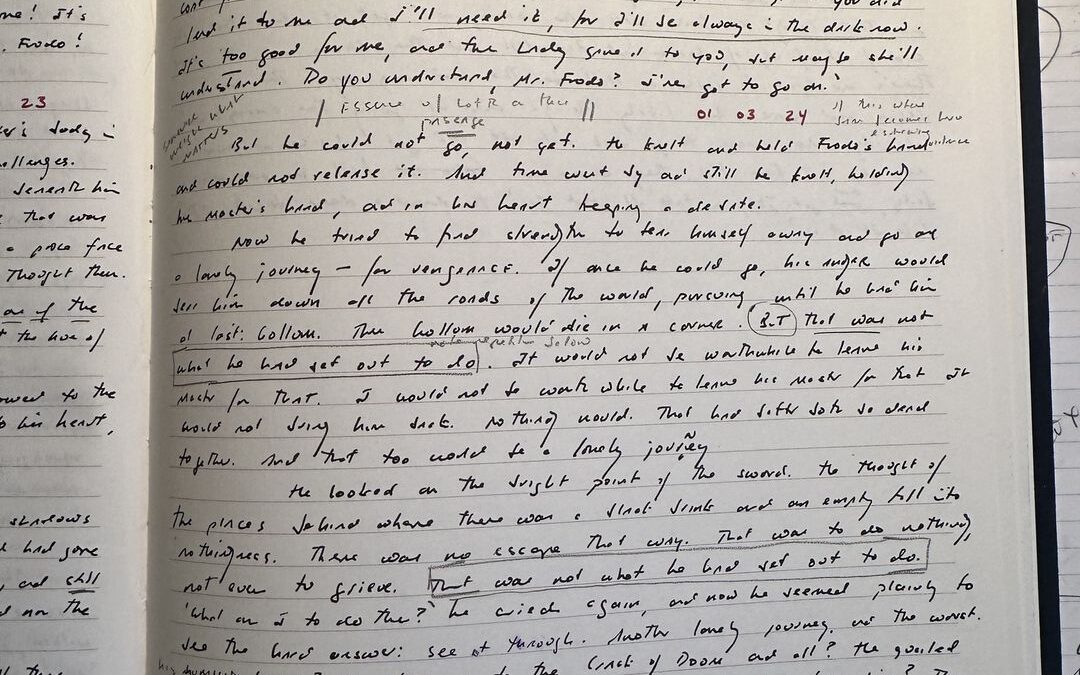As I have been copying The Lord of the Rings out by hand to improve my own writing, I better appreciate the genius of its author, J.R.R. Tolkien, the man I call the master.
And, when, yesterday on the 132nd anniversary of the master’s birth, I copied out the scene where “Master Samwise” makes his choice (The Two Towers, Book IV, Chapter Ten). There, we see the heroic nature of the chapter’s eponymous gardener. To be sure, Tolkien has been slowly revealing Samwise’s nature almost from the moment they set out on the quest.
But here he must choose. The choice for this loyal servant is not easy.
Indeed, as I copied out the master’s words, I found myself circling “but” multiple times, this contradictory conjunction used to show Sam’s internal conflict. Frodo’s gardener quickly sets aside his own emotional needs: to wreak vengeance on Gollum for betraying Frodo (& him) to the vile arachnid Shelob with perhaps the most significant “but” in the passage: “But that was not what he set out to do.”
Tolkien repeats the line in the subsequent paragraph, omitting the introductory conjunction: “That was not what he set out to do.” This suggests that he is no longer weighing his options, but aware of what is most important.
Sam’s thoughts are turning from his love for and duty toward Frodo to the object of their quest.
He knows of the perils that lie ahead. He is afraid. Tolkien shows this masterfully in the simple sentence, its clauses linked by that powerful conjunction: “He quailed still, but the resolve grew.”
Sam questions his own adequacy, but realizes that he is the “last of all the Company”: if he does not take the Ring, who will?
Sam acknowledges that he is not one to put himself forward, yet Tolkien gives us the penultimate “but” of this interior monologue to show how this humble hero addresses his choice: “But you haven’t put yourself forward; you’ve been put forward.” This hero is not one to style himself as better suited to the task than others.
He uses that conjunction just once more both to emphasize his feelings of inadequacy and to suggest his anxiety: “But I’ll be sure to go wrong: that’d be Sam Gamgee all over.”
All but certain he’ll fail, Sam still resolves to undertake this task.
So strong is that resolve that in the last paragraph of his interior monologue, Samwise Gamgee has dispensed with the contradictory conjunction altogether: the word “but” is not to be found. And not once, but twice he begins sentences with a conjunction that is anything but contradictory: And.
And so Sam explains his choice.
And we see his heroic nature: not doing this to exalt himself, not even because he sees himself as particularly gifted, but because this is what the company set out to do. The hero knows that even as he doubts his own abilities, he must complete the quest.

